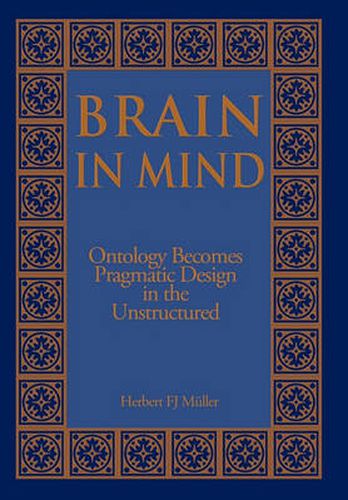Readings Newsletter
Become a Readings Member to make your shopping experience even easier.
Sign in or sign up for free!
You’re not far away from qualifying for FREE standard shipping within Australia
You’ve qualified for FREE standard shipping within Australia
The cart is loading…






This title is printed to order. This book may have been self-published. If so, we cannot guarantee the quality of the content. In the main most books will have gone through the editing process however some may not. We therefore suggest that you be aware of this before ordering this book. If in doubt check either the author or publisher’s details as we are unable to accept any returns unless they are faulty. Please contact us if you have any questions.
Our work in psychiatry always involves both sides of the mind-body divide. But despite much effort to clarify the nature of the relation between mind and body, this question is still a riddle. That is a puzzling situation, to put it mildly.
One central unresolved question in understanding the mind-brain relationship is not of an experimental type but stems from difficulties in the use of concepts. St. Augustine ( 400 CE) wrote that it is impossible for humans to understand how the mind is attached to the body. Despite the inherent paradox that humans as minds plus bodies are entirely puzzling and incomprehensible, this would appear to be an accurate statement until now, despite an extensive literature that tries to solve the difficulty, particularly as a result of the recent increase in the knowledge of brain function.
This essay, “Brain in Mind,” shows that the difficulty is due to the Occidental tradition of metaphysics-ontology, which claims that reality is mindindependent; that belief eliminates the mind from reality, because the mind cannot become mind-independent. Principles from phenomenology (Jaspers) and constructivism (von Glasersfeld and others), and the awareness that all reality-structures involve the subject’s pragmatic designing activity in an unstructured background, show a contradiction-free way of dealing with the question, which is also of help for other areas of knowledge.
$9.00 standard shipping within Australia
FREE standard shipping within Australia for orders over $100.00
Express & International shipping calculated at checkout
This title is printed to order. This book may have been self-published. If so, we cannot guarantee the quality of the content. In the main most books will have gone through the editing process however some may not. We therefore suggest that you be aware of this before ordering this book. If in doubt check either the author or publisher’s details as we are unable to accept any returns unless they are faulty. Please contact us if you have any questions.
Our work in psychiatry always involves both sides of the mind-body divide. But despite much effort to clarify the nature of the relation between mind and body, this question is still a riddle. That is a puzzling situation, to put it mildly.
One central unresolved question in understanding the mind-brain relationship is not of an experimental type but stems from difficulties in the use of concepts. St. Augustine ( 400 CE) wrote that it is impossible for humans to understand how the mind is attached to the body. Despite the inherent paradox that humans as minds plus bodies are entirely puzzling and incomprehensible, this would appear to be an accurate statement until now, despite an extensive literature that tries to solve the difficulty, particularly as a result of the recent increase in the knowledge of brain function.
This essay, “Brain in Mind,” shows that the difficulty is due to the Occidental tradition of metaphysics-ontology, which claims that reality is mindindependent; that belief eliminates the mind from reality, because the mind cannot become mind-independent. Principles from phenomenology (Jaspers) and constructivism (von Glasersfeld and others), and the awareness that all reality-structures involve the subject’s pragmatic designing activity in an unstructured background, show a contradiction-free way of dealing with the question, which is also of help for other areas of knowledge.